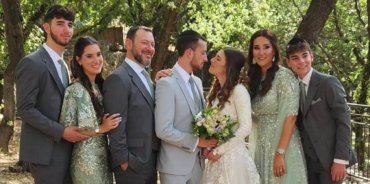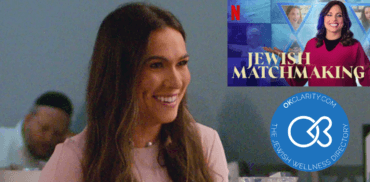
TikTok Emboldens Those Desperate To Be Seen, The High Holidays Are An Antidote
Seinfeld has a joke that more people are afraid of public speaking than death. That means that more people would rather be in the casket than giving the eulogy. Not me. I was a natural born performer. Was it in my genes? Did my middle-child birth order push me to be louder in order to not get lost between my older and younger sisters? Who knows, but from the youngest age, I enjoyed performing, be it dance, piano, gymnastics, drama.
In my teens, I became an Orthodox Jew, and I learned that God is hidden and in our effort to emulate the Almighty, we too should eschew the spotlight and do acts of greatness behind the scenes. Indeed, some of the highest levels of charity, according to Jewish law, are given anonymously. Additionally, our sages teach us to not seek out the limelight. “Who is honored?” they ask, “He who honors others.” (Pirkei Avos – Ethics of the Fathers).
Upon learning these teachings, the aspirations I had as a secular child to grow up and become an actress or model were no longer goals. I filed them away into the bin of “beliefs and practices from my pre-observant days” and moved onto other career ideas and life pursuits. But sometimes, we are required to do something publicly for the greater good, whether it’s giving a donation in your name, to inspire others to be generous, or speaking out, if there’s a reason to be vocal. Hiddenness remains a value, but it can sometimes get overridden to achieve a specific positive goal.
It was with this intention that I started Jew in the City, filming our first video in 2005 and launching the nonprofit in 2007. I realized that Orthodox Jews and Judaism were maligned in the minds of most of the world. Based on interactions I had had with individuals on a small scale, I believed that bringing my positive perspective to a larger audience could impact the Jewish community for the good. It was obviously a big goal to attempt, but we are meant to serve God with our good inclination and our evil inclination. I wondered if this could be an opportunity for me to channel my stage presence for a spiritual purpose.
Even so, I was always aware of the dangers of the spotlight. Years ago, I wrote about our generation’s obsession with fame for the sake of fame, when I compared Katy Perry’s Firework to a popular song from a century before. “This Little Light of Mine, I’m Gonna Let It Shine” is about how a modest candle can light up a room, vastly different than the modern message of being a noisy firework. But where the world was a decade ago, when I wrote this piece, is nothing compared to where we are today!
Not only are Americans more addicted to their phones than ever, the rate of social media users who are influencers (10%!) is also growing. This means that more and more people are bringing viewers into their lives and homes, into their personal situations, including crying on camera, discussing intimate or embarrassing topics for everyone to see, to garner views and engagement. For your average influencers, holding hiddenness and modesty as a core value is nothing they seem to consider.
What most influencers want in this age of oversharing is to be noticed. There is a hunger in this generation to be seen, to matter, and social media is the perfect drug that replicates the high but never actually fills it. People need to actually be seen in their homes by their parents, as they are growing up, in order to form healthy attachment. Sadly, this developmental component is lacking in many people’s upbringings, and it takes years of therapy to recognize and heal childhood emotional neglect.
But even if one’s flesh and blood parents didn’t see them, our Parent in Heaven certainly does. During these Days of Awe, we are reminded of it. In the Rosh Hashana machzor in the U’Netaneh Tokef prayer we read:
All mankind will pass before You like members of the flock. Like a shepherd pasturing his flock, making sheep pass under his staff, so shall You cause to pass, count, calculate, and consider the soul of all the living; and You shall apportion the fixed needs of all Your creatures and inscribe their verdict.
One by one, God sees billions of people, to consider our souls and to know our needs. Then, on Yom Kippur, before reciting the viduy (confessional prayer), we say:
You know the mysteries of the universe and the hidden secrets of every living soul. You search the innermost chambers of the conscience and the heart. Nothing escapes You; nothing is hidden from Your sight. Therefore, may it be Your Will to forgive all our sins.
Not only does the Almighty see us as individuals, carefully counting each of us one by one, our loving Parent in Heaven knows us, in the most intimate way. We need not share the most private details about ourselves to total strangers online to create a sense of closeness with others. Our innermost thoughts and parts of our identity are known by the Master of the Universe.
Being aware that we are seen and known will not automatically heal a hurting generation, but during a time of year when we are meant to commit to self-reflection and improvement, knowing that we matter, may help some people start that journey.
If you found this content meaningful and want to help further our mission through our Keter, Makom, and Tikun branches, please consider becoming a Change Maker today.







